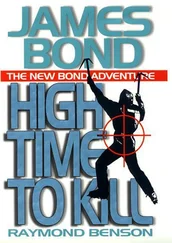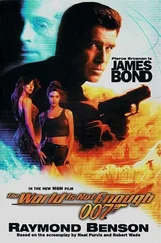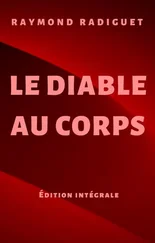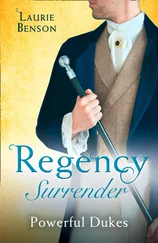Raymond Benson - Doubleshot
Здесь есть возможность читать онлайн «Raymond Benson - Doubleshot» весь текст электронной книги совершенно бесплатно (целиком полную версию без сокращений). В некоторых случаях можно слушать аудио, скачать через торрент в формате fb2 и присутствует краткое содержание. Год выпуска: 2000, ISBN: 2000, Издательство: Jove, Жанр: Старинная литература, на английском языке. Описание произведения, (предисловие) а так же отзывы посетителей доступны на портале библиотеки ЛибКат.
- Название:Doubleshot
- Автор:
- Издательство:Jove
- Жанр:
- Год:2000
- ISBN:9780515130614
- Рейтинг книги:4 / 5. Голосов: 1
-
Избранное:Добавить в избранное
- Отзывы:
-
Ваша оценка:
- 80
- 1
- 2
- 3
- 4
- 5
Doubleshot: краткое содержание, описание и аннотация
Предлагаем к чтению аннотацию, описание, краткое содержание или предисловие (зависит от того, что написал сам автор книги «Doubleshot»). Если вы не нашли необходимую информацию о книге — напишите в комментариях, мы постараемся отыскать её.
Doubleshot — читать онлайн бесплатно полную книгу (весь текст) целиком
Ниже представлен текст книги, разбитый по страницам. Система сохранения места последней прочитанной страницы, позволяет с удобством читать онлайн бесплатно книгу «Doubleshot», без необходимости каждый раз заново искать на чём Вы остановились. Поставьте закладку, и сможете в любой момент перейти на страницу, на которой закончили чтение.
Интервал:
Закладка:
He shut his eyes and felt merciful waves of drowsiness pull him toward unconsciousness. The movement of the train, combined with physical exhaustion, lulled Bond into a fitful but badly needed sleep.
When he opened his eyes, the train was still rocking and rumbling toward its destination. He felt another presence in the compartment with him.
Heidi was sitting across from him, with a seat between hers and the one where his feet were propped. She was reading a romance novel and had on reading glasses; otherwise she was still dressed in the tight jeans and white blouse.
“Hello there,” Bond said, sitting up and straightening his jacket. “I must have dozed off.”
She glanced at him and gave a cursory smile and nodded, but kept silent. Her eyes went back to the book.
Odd, Bond thought. What was the matter with her?
“So,” he said, “what time are we having dinner?”
The blonde looked up at him over her glasses. “I beg your pardon?”
“Dinner? Tonight? At the hotel? What time?”
Heidi opened her mouth as if she had just been insulted. She closed her book and stood. “I think I’ll go back to the compartment I was in before.” She opened the door and stepped into the corridor. Her parting words were, “You have some nerve, asshole.” Then she walked on.
What the hell? Bond rubbed his eyes. Did he dream that?
He felt foolish and confused.
Dizzy woman, he thought. Well, she had admitted being from California. She had probably grown up on the beach, wearing skimpy bikinis and giving all the teenaged boys inflexible frustration. To hell with her …
The train stopped in Rabat, Morocco’s capital. There was a half-hour wait before it departed, so Bond took the opportunity to don his sunglasses and baseball cap and stretch his legs. Rabat station is larger and has more amenities than the one in Tangier. He scanned the newspapers in the gift shop but couldn’t find one in English. A French paper proclaimed that war between Britain and Spain was imminent. There was a photo of Domingo Espada, surrounded by bodyguards, giving a speech at a bullring. Several matadors were standing beside him.
Bond recognized one of them. Javier Rojo was a young bullfighter whom Bond got to know by accident just a few years ago at an art gallery in Lisbon. Bond’s date had been a friend of the artist. Apparently Javier’s date was, too. They had met at the bar, where Bond was busy with a vodka martini in an effort to avoid the small talk of the art crowd. Rojo was having a soft drink, and he turned to Bond and said, in English, “The only alcohol I drink is wine at dinner.”
“Why?” Bond had asked.
“You have to be sober to do what I do.”
He was a handsome, fiery young man in his mid-twenties, and he had come from a long line of bullfighters. His grandfather had been one of the most famous matadors in Spain until he was killed in the ring. Rojo’s father was also a very successful bullfighter who had passed the torch on to his two sons when he retired. Javier Rojo was wealthy, popular, and as much a celebrity as one could be in Spain.
Bond blinked when he saw the headline of a related story on the inside of the paper. “ROBERTO ROJO MURDERED.”
That was Javier’s younger brother!
Bond read with incredulity how the young matador and the body of an unidentified young girl had been found slain in his hotel room in Ronda. According to the police, the bullfighter’s “throat had been cut.”
It was the Union way. Could it be a coincidence? Bond wondered.
He thought back to the beginning of his friendship with Javier Rojo.
That night in Lisbon, Bond and the young bullfighter had struck up a conversation and found that they got along well. Bond had always held the art of bullfighting at arm’s length until Rojo had enlightened him. Like most non-Spaniards, Bond was of the opinion that bullfighting was both cruel and archaic. This notion changed after Rojo convinced Bond to come to a corrida and watch him fight. Rojo had taken the time to teach Bond the history of bullfighting and its traditions, and why the Spanish were so passionate about it. After a week as Javier’s guest, Bond began to see why men like Ernest Hemingway and Orson Welles had become fascinated by bullfighting. Bond grew to appreciate the art and drama behind the spectacle, and he admired the courage of the matadors who risked their lives to face a charging bull.
Bond studied the newspaper carefully. So Javier Rojo was in with Domingo Espada now. Bond wished that he didn’t have the Union to deal with. Otherwise, he could be in Spain, seeking out Espada and stopping him from instigating this idiotic conflict between their two countries. Perhaps Rojo could be of help.
Bond sighed. He couldn’t think about that now. He had other, more important things to worry about. Britain would deal with Spain. If war broke out, it would be over quickly. NATO or the U.N. would negotiate a settlement. Bond didn’t have to worry.
Or did he? The terrorists aboard the ferry in Tangier—they had claimed that they were working for Domingo Espada.
The police sketch of the suspect was also on the front page. The caption said that the “British terrorist was still at large.” Although he hadn’t been identified yet, there was some speculation that he was with British secret intelligence.
Wonderful, Bond thought. He wagered that the press would know his name within a day.
He rejoined the train after eating a dry roast beef sandwich and drinking a Spéciale Flag beer. His compartment now had three new people in it—a man, his veiled wife, and a small boy, who was already fussing over a toy that his father had taken from him. Bond wasn’t about to stand for that, so he excused himself and went back out to the corridor as the train pulled away from the station.
He went to the rear of the train to smoke another cigarette and watch the remnants of Rabat disappear. Trains were Bond’s favorite means of traveling if he couldn’t drive a fast car. There was something old-fashioned and romantic about train travel. Airplanes simply dropped a person in the middle of a location. With trains, one was injected into the bloodstream of a country, and enabled to see the people and places and cultures. It took more time to get around, but it was far more gratifying.
The door to the corridor opened behind him and Heidi Taunt came out to join him.
“Hi there,” she said, brightly. She was smiling broadly, as if the earlier encounter in the train compartment had never happened. “We’ve got to stop meeting like this.”
Bond didn’t say anything, wondering what her game was. He did offer her a cigarette, which she took.
“Thanks,” she said. “Hey, what time do you want to meet for dinner?”
Even more confused, Bond said, “Eight o’clock?”
“Fine,” she said. “The Moroccan restaurant. I can’t wait to see the King Hassan II mosque. I hear it’s one of the wonders of the world. Have you seen it?”
“Yes, it’s lovely,” Bond said. “But I must say that Casablanca is not my favorite city in Morocco.”
“I hear it’s not so great,” she concurred. “Marrakesh is supposed to be the place to go. I hear Fes is nice, too.”
“You’re right on both counts.” Bond finished his cigarette. Why was she so friendly now, when just a little while ago she had treated him with disdain?
Without warning, she said, “Excuse me,” and reached up to remove Bond’s sunglasses. She peered at his face, studying it. “I just wanted to see your eyes. They’re very sexy.” She handed back the sunglasses. “Here you go.”
She stubbed out her cigarette and tossed the butt into the air. She squeezed his arm lightly and said, “See you tonight, handsome.” She reentered the train, leaving Bond dumbfounded.
Читать дальшеИнтервал:
Закладка:
Похожие книги на «Doubleshot»
Представляем Вашему вниманию похожие книги на «Doubleshot» списком для выбора. Мы отобрали схожую по названию и смыслу литературу в надежде предоставить читателям больше вариантов отыскать новые, интересные, ещё непрочитанные произведения.
Обсуждение, отзывы о книге «Doubleshot» и просто собственные мнения читателей. Оставьте ваши комментарии, напишите, что Вы думаете о произведении, его смысле или главных героях. Укажите что конкретно понравилось, а что нет, и почему Вы так считаете.












